|
With over 20 grape varieties grown in Chile, the Carménère grape has become Chile’s “signature” grape. Carménère is a member of the Cabernet family and was originally planted in the Medoc region of Bordeaux, France. It is considered part of the original six grapes of Bordeaux. The name Carménère is derived from the French word crimson. It was thought to be extinct after the European phylloxera outbreaks in the 19th century. However, the grape was rediscovered in Chile in the 1990s. Chile now has the largest area of planted Carménère in the world. Today, Carménère grows chiefly in the Colchagua Valley, Rapel Valley, and Maipo Province of Chile and produces the majority of Carménère wines. Carménère is known for its deep red color with fruit-driven blackberry, cherry and spice flavors. Here is a sampling of six noteworthy wines. In Situ Reserva Carménère 2021 José Vincente founded In Situ Family Vineyards in 1974. After growing grapes for 20 years, he and his son Horacio decided to build a winery and produce high-quality wines in the Aconcagua Valley. The winery is located in San Esteban, Region V, Chile. The Upper Aconcagua terroirs are well-suited to wine growing with a unique combination of soil, light, and water. This wine is 95% Carménère and 5% Cabernet Sauvignon, handpicked from two vineyards. One is located on the slopes of Paidahuen hill (3,000 feet above sea level); the other vineyard is on the riverbanks of the Aconcagua River. The wine is aged in 50% French and 50% American 225-litre oak barrels for 12 months. After bottling, this wine was aged for at least three additional months before release. Nose: Dark fruit, spice, herbal notes, and a hint of cedar. Palate: Dark cherry, dark berries, baking spice, anise, a hint of cocoa, and acidity blended into the mix. Alcohol: 13% SRP: $13 Pairing suggestions: In Situ suggests honey-roasted lamb or pork in mustard sauce. Try seared tuna in peppercorn sauce as well. InVINA Luma Chequen Gran Reserva Carménère 2020 InVina is a family-owned winery that the Huber family founded in 2007. With over 20 years of experience in Chilean viticulture and wine, they are focused on investing in and developing vineyards in the Maule Valley. They are also focused on producing quality grapes and wine. This 100% Carménère is handpicked from the best lots of InVina’s estate vineyards in the Maule Valley appellation. The wine is aged in oak barrels for 12 months and bottled with minimum filtration. Nose: Ripe, lush berries, cherry, herbs, forest floor, and a hint of bell pepper. Palate: Dark cherry, blueberry, baking spice, chocolate, and pepper. It is a smooth and fresh wine with a hint of sapidity on the finish. Alcohol: 13.9% SRP: $17 Pairing suggestions: Enjoy with aged cheese, game, beef stew, spicy cuisine, or vegetable risotto. Morandé Vitis Única Carménère 2021 Viña Morandé was founded by Pablo Morandé in 1996. He was the first person to plant vines in the Casablanca Valley, and also has vineyards in Maule Valley and Maipo Valley. The company is dedicated to implementing sustainable practices to benefit the environment in their decision-making processes. Their eye is on traditional with an innovative spirit in the vineyards and winery. The grapes for this 100% Carménère are handpicked from the San Bernardo estate, located in the Maipo Valley. The vines are planted in a bed of pure gravel. This wine is aged for about 16 months in 80% French oak foudres and 20% in new French oak barrels. Nose: Hints of violet with cherry, dark berries, baking spice, pepper, and espresso beans. Palate: Aromas segue onto the palate with persistent and vibrant fruit, earthy forest floor, and smooth tannins. The finish is long, with chocolate, spice, and cherry lingering. Alcohol: 13.5% SRP: $20 Pairing suggestions: Viña Morandé suggests stews, white meat, creamy pasta, young cheese, and dark chocolate. Primus Carménère D.O Apalta 2020 Primus Winery was founded over 20 years ago by Agustin Hunneus. The estate is located in Apalta, a sub-region of Colchagua Valley. This exclusive appellation gained Denomination of Origin (D.O.) status in 2018. Only seven wineries have the privilege of owning vineyards here. Primus is Latin for “the first” or “the first among its peers.” Primus is the pioneering regenerative organic and biodynamic winery of Apalta, with vines dating back to 1889. The grapes for this 100% Carménère were harvested from the highest part of their organic vineyard and in the lower part of the property as well. The wine was aged 12 months in French oak barrels, 18% new barrels. Nose: A hint of floral with cherry, blueberry, spice, herbs, and cocoa. Palate: Vibrant and fruity with dark cherry, berries, baking spice, and silky tannins. A touch of pepper and minerality linger on a long finish. Alcohol: 14.5% SRP: $21 Pairing suggestions: Primus suggests beef empanadas, lamb curry, and stews. TerraNoble CA2 Costa 2020 TerraNoble, founded in 1993, is in the Maule Valley of Chile. TerraNoble initially presented itself as a boutique winery specializing in Merlot. However, in 1994, Chilean Merlot was identified as Carménère, so TerraNoble committed to this rediscovered variety. Since then, they have extended viticultural experimentation and innovative winemaking practices to the Colchagua and Casablanca valleys. The grapes for this 100% Carménère are handpicked from their vineyard plots in the Colchagua Valley ’Costa’, Lolol vineyard, 40 kilometers from the ocean. 58% of the wine was aged in untoasted foudres, and 42% in new and previously used 300-lt French oak barrels for 16 months. It was then further aged for nine months in bottle. Nose: Lush red fruit, spice, earth, dark coffee beans, and herbs. Palate: Dark berries, herbs, and spice blend with silky tannins that are nicely balanced with acidity. The finish is long, with dark chocolate, espresso, and a hint of herbs and minerality lingering. Alcohol: 14.5% SRP: $36 Pairing suggestions: TerraNoble suggests thick ribs, oven-roasted beef brisket, risotto, or seasoned foods. Montes Wings Carménère 2020 Montes Winery is based in the Colchagua Valley, Chile, with its vineyards spread throughout the country. It was established in 1987 by original partners Aurelio Montes and Douglas Murray. In 1988, Alfredo Vidaurre and Pedro Grand joined the partnership. These visionaries created a company recognized worldwide today, with their wines exported to over a hundred countries. Wings was created from a long-running dispute between Aurelio Monte Sr. and his son, Aurelio Jr. His son wanted to produce a “more free-flowing style of Carménère.” The result is Wings. It is 85% Carménère and 15% Cabernet Franc. Grapes for this wine are sourced and hand-picked from their Finca de Apalta estate in the Colchagua Valley. The wine was aged in new French oak barrels (80%) and second- and third-use barrels (20%) for 16 months before bottling. Nose: Dark berries, cherry, pepper, baking spice, tobacco, and a hint of fig. Palate: Lush dark fruit with spice and a touch of dark chocolate lingering on a long finish. Beautifully structured and complex. It will only get better with age! Alcohol: 14.5% SRP: $55 Pairing suggestions: Aged cheese platter, roasted/grilled meat, mushroom stew, lamb chops, or vegetable risotto. Happy sipping! Until next time…
Cheers! Penina To leave a comment or if you have an inquiry, please contact me at [email protected] Happy New Year! Are you ready to embrace 2024? I certainly am! I have lots to share with you over the next few months, which includes more insights on my trip to Mt. Etna and Alentejo, a Bulgarian dream tour, and lots of wine from around the world! With the season’s first significant snowstorm in progress, I decided to sample a few red wines to entertain my palate while the snow piles up outside. So, let’s start toasting the New Year with these tasty treats from Italy, Portugal, and Chile. Masciarelli Montepulciano d’Abruzzo DOC 2020 Masciarelli Tenute Agricole is a family-owned winery founded in 1981. Led by mother-daughter team Marina Cvetić and Miriam Lee Masciarelli, the winery is the only one in Abruzzo to own land in all four provinces ((Chieti, Pescara, Teranio, and L’Aquila.) They have 350 hectares of estate-owned vineyards and are committed to sustainability in the vineyards and the winery. Masciarelli has 22 labels and seven product lines. This wine is 100% Montepulciano, hand-harvested from nine specific vineyards. It is aged in stainless steel tanks and then bottled without fining or filtration. Nose: Violets, cherry, berries, and spice. Palate: Juicy bing cherries, red berries, spice, and a hint of herbs. It is nicely balanced and good value for the price! Alcohol: 13.5% SRP: $15 Pairing suggestions: Pizza, pasta, grilled meat, or charcuterie board. Dos Lusíadas Pinteivera Tinto Douro Valley DOP 2018 Michel Chapoutier is an iconic winemaker and wine merchant known for his organic wines in the Rhone Valley, France. In 2009, he picked out a small, three-hectare plot in the Douro Valley, Portugal. His motivation was to produce wine from the indigenous and most praised grape variety, Touriga Nacional. He and local growers collaborated, resulting in the creation of Pinteivera. This 100% Touriga Nacional is hand-harvested at maturity, and the wine is aged in 100% French oak barrels for 12 months, with a percentage that goes to new barrels varying from year to year. “Dos luisiadas is named after the famous poem, Os Lusíadas, written by Portuguese poet Luís Vaz de Camões. This epic work tells the tale of the Portuguese explorer Vasco de Gama’s travels to India.” Nose: Violets, berries, and spice, with a touch of cherry and herbs. Palate: Lovely notes of dark fruit, plum, dark cherry, wisps of minerality, and notes of dark berries and dark chocolate lingering on a long finish. Beautiful depth and character. Alcohol: 15% SRP: $38 Pairing suggestion: Hearty stews, braised brisket, seared tuna, chili, or grilled octopus. Viña Maquis Gran Reserva Cabernet Sauvignon 2018 Viña Maquis is located in the heart of the Colchagua Valley in Chile between the Tinguiririca River and the Chimbarongo Creek. Both waterways act as conduits for cool coastal breezes that moderate the warm summers and have a pronounced effect on lowering the temperatures during the hot season. The winemakers said, “This has an impact on the characteristics of the grapes and the wines by increasing the fresh fruit and floral aromas, making the wines more vibrant on the palate and moderating the alcohol levels.” The Hurtado family has owned the estate since 1916, but its roots date back to the 1800s. They own 218 hectares of vineyards in the DO Colchagua Valley. The grapes for this wine are 90% Cabernet Sauvignon, 6% Cabernet Franc, 3% Carmenere, and 1% Petit Verdot. The grapes are all sourced and hand-picked from a vineyard in the Palmilla DO. The wine was aged for 12 months in French oak barrels. Nose: Red berries, plum, herbs, baking spice, and bing cherries. Palate: Aromas segue onto the palate with an emphasis on cherry and hints of minerality. The tannins are mild, and the wine has good structure and balance. The finish is long and heavenly. Alcohol: 14% SRP: $20 Pairing suggestions: Barbecue fare, stews, cheese plate, portobello burger, or seared tuna. Montes Wings Carménère 2020 Montes Winery is based in the Colchagua Valley, Chile, with its vineyards spread throughout the country. It was established in 1987 by original partners Aurelio Montes and Douglas Murray. In 1988, Alfredo Vidaurre and Pedro Grand joined the partnership. These visionaries created a company recognized worldwide today, with their wines exported to over a hundred countries. Wings was created from a long-running dispute between Aurelio Monte Sr. and his son, Aurelio Jr. His son wanted to produce a “more free-flowing style of Carménère.” The result is Wings. It is 85% Carménère and 15% Cabernet Franc. Grapes for this wine are sourced and hand-picked from their Finca de Apalta estate in the Colchagua Valley. The wine was aged in new French oak barrels (80%) and second- and third-use barrels (20%) for 16 months before bottling. Nose: Dark berries, cherry, pepper, baking spice, tobacco, and a hint of fig.
Palate: Lush dark fruit with spice and a touch of dark chocolate lingering on a long finish. Beautifully structured and complex. It will only get better with age! Alcohol: 14.5% SRP: $55 Pairing suggestions: Aged cheese platter, roasted/grilled meat, mushroom stew, lamb chops, or vegetable risotto. Fun fact: Chile has the most Carménère under vine in the world, at 10,332 ha/25,530 acres in 2021. By comparison, France has just 80 ha/197 acres. DNA analyses carried out in New Zealand in 2006 showed that several vines planted as Cabernet Franc are, in fact, Carménère. It is also present in Veneto, Italy, plus a few vineyards in China. I wish everyone a healthy, happy, and peaceful New Year! Until next time… Cheers! Penina To leave a comment or if you have an inquiry, please contact me at [email protected] Summer has ended, but autumn brings its magic with mother nature’s dramatic foliage display, crisp “sweater” weather, and a season filled with apple picking, pumpkin carving, and grape harvests! With temperatures beginning to drop, I’m focusing on red wines a bit more. Of course, I’ll be drinking white and rosé wines all year long, but with cooler weather in the forecast, I predict red wines paired with stews and hearty soups will start to replace lighter fare. And who can resist sipping a lovely Pinot Noir, Tempranillo, Cabernet Sauvignon, Cabernet Franc, Carménère, or a Sangiovese from Chianti Classico? It’s a perfect way to welcome autumn. Here are seven palate-pleasing wines from Spain, California, Chile, Italy, and Oregon to pair with fall cuisine. Bodegas Montecillo Reserva Rioja 2013 Bodegas Montecillo is Rioja Spain’s third-oldest winery and the second oldest in Rioja Alta, dating back over 150 years. This wine is a blend of 90% Tempranillo, 8% Garnacha, and 2% Mazuelo. It was aged for two years in handcrafted oak barrels followed by 18 months in bottle. Nose: Juicy, red fruit, clove, herbs, and floral hints. Palate: Plum, cherry, baking spice, silky tannins, hints of cedar, and a touch of fennel on the finish. A fantastic wine for the price! Alcohol: 13.5% SRP: $15 Pairing suggestions: Charcuterie, stews, hearty soups, grilled or braised meats and game, or seared tuna. Cune Organic Rioja 2020 CVNE (pronounced coo-nay) is an acronym for Compania Vinicola del Norte des Espana, and it is one of Rioja’s most iconic and historic wine producers. Two brothers founded the winery in 1879, and within six years, they began receiving international awards for their wines. The current owners are direct descendants and represent the fifth generation. This wine is a blend of 60% Garnacha, 30% Tempranillo, and 10% Graciano. It is aged for six months in oak barrels. Nose: Floral, wild berries, herbs, and spice Palate: Juicy and fresh with aromas carrying through to the palate with cherry, anise, and spice notes. Delicious! Alcohol: 13.5% SRP: $17 Pairing suggestions: Cheese platter, meats, pasta, risotto, or stews. Josh Cellars Lodi Reserve Cabernet Sauvignon 2020 Joseph Carr formed his own wine company in Napa Valley after spending a decade as a world-class sommelier and another decade as a wine industry executive. His dream was to have a family-owned winery, so in 2005 he began making wines under the label ‘Joseph Carr.” In 2007 Carr launched Josh Cellars as a tribute to his dad, Josh, who inspired and influenced the man Carr is today. “Every bottle of Josh Cellars wine produced honors and acknowledges his father.” In honor of his father, a volunteer firefighter in upstate NY, Carr created the “Lodi Cabernet Sauvignon” as a tribute. The winery donates $1 for every bottle of the Lodi Cab sold to either the National Volunteer Firefighter Council or local firefighter charities nationwide. Nose: Dark cherry, berries, spice, and chocolate Palate: Dark berries mingle with cherry, plum, espresso, and baking spice- firm tannins and beautifully structured with a long finish. Alcohol: 14% SRP: $21.99 Pairing suggestions: Grilled meat, game, mushroom risotto, hearty soups, stews, or pumpkin chili. Viña Maquis Gran Reserva Cabernet Franc 2018 The Hurtado family, owns the Maquis estate, now in its fourth generation. Practicing sustainability, the grapes for this wine are sourced from vineyards in Colchagua Valley, Chile, where the winery is located. The blend for this wine is 90% Cabernet Franc, 7% Carménère, and 3% Petit Verdot. It is aged for 12 months in French oak barrels. Nose: Red berries, floral notes, baking spice, and a bit earthy. Palate: Lush fruit with strawberry plum, cherry, herbs, and spice. Complex and rich, but not overpowering. Alcohol: 14% SRP: $24 Pairing suggestions: Barbecued ribs, seared tuna, spicy Asian cuisine, grilled or braised meat, stew., or glazed breast of duck. TerraNoble CA1 Andes 2018 TerraNoble, founded in 1993, is located in the Maule Valley of Chile. TerraNoble initially presented itself as a boutique winery specializing in Merlot. However, in 1994 Chilean Merlot was identified as Carménère, So, TerraNoble committed to this rediscovered variety. And since then, they have extended viticultural experimentation and innovative winemaking practices to the Colchagua and Casablanca valleys. The grapes for this 100% Carménère are handpicked from their best vineyard plots in the Colchagua Valley at the foot of the Andes. 70% of the wine was aged in new and previously used 300-L French oak barrels, and 30% in untoasted foudre for 12 months. It was then further aged for six months in bottle. Nose: Lush dark fruit, spice, earth, dark coffee beans, and herbs. Palate: Dark berries, herbs, and spice blend with silky tannins that are nicely balanced with acidity. The finish is long, with dark chocolate, espresso, and a hint of herbs lingering. Alcohol: 14.5% SRP: $24.99 Pairing suggestions: TerraNoble suggests thick ribs, oven-roasted beef brisket, risotto, or seasoned foods. Querciabella Chianti Classico DOCG 2018 Querciabella was founded in 1974 with a commitment to quality, sustainability, and authenticity. Querciabella has continually sharpened its approach to biodynamic viticulture for over a decade. With vineyards throughout Tuscany’s Chianti Classico and Maremma areas, Querciabella exemplifies the respectful preservation of tradition through forward-thinking, albeit completely natural winemaking. This 100% Sangiovese wine is vegan. No animal products or byproducts are used in the production of this wine. It is aged for 12 months in fine to extra fine-grained oak barriques (225L) and tonneaux (500L) which 10% is new. Nose: Floral, red cherry, red berries, baking spice, and a slight hint of licorice. Palate: This is a fine and silky wine that is fresh, juicy, vibrant, and elegant. Aromas segue onto the palate with hints of chocolate, plum, and sour cherry on the finish. Alcohol: 14.5% SRP: $33 Pairing suggestions: Classic Tuscan dishes, seared tuna, mushroom risotto, salmon burgers, or Asian cuisine. J. Christopher Volcanique Pinot Noir 2018 J. Christopher Winery is a small winery in northern Willamette Valley, Oregon, owned by well-known winemaker Erni Loosen, creator and owner of Germany’s Dr. Loosen and Villa Wolf estates. Following his passion for Pinot Noir, Erni set his sites on J. Christopher, eventually purchasing 40 acres and planting the Appassionata Vineyard. Ernie and his team are proactive when it comes to sustainability. Maintaining healthy soil and vines is a priority. The grapes for this 100% Pinot Noir cuvée are sourced from vineyards in Dundee Hills with volcanic soil. The wine is aged 18 months in barriques (25% new), with no fining or filtration. Nose: Floral, cherry, red berries, cranberry, baking spice, and minerality.
Palate: Fresh, juicy, and elegant, with aromas spilling onto the palate along with notes of raspberry, pomegranate, and hints of oak and spice. Fine tannins and a silky mouthfeel add to this dry and savory wine. Alcohol: 13.5% SRP: $40 Pairing suggestions: Grilled meat, barbecued chicken, veal marsala, casseroles, stews, or pizza. Enjoy and happy autumn! Until next time… Cheers! Penina To leave a comment or if you have an inquiry, please contact me at [email protected] Earth Day is a yearly celebration founded by Senator Gaylord Nelson in 1970. It is celebrated worldwide every April 22nd, and this year’s theme is “Invest In Our Planet.” The objective of Earth Day is to promote environmental awareness and respect for life on the planet. It is essential to do our part all year long and to move toward a more sustainable environment and a healthy future for the earth. Globally, more wineries than ever before are contributing their efforts to maintain sustainable practices in the vineyard and wine production. A chemical-free environment, careful use of energy, water conservation, and best use of the environment are becoming the focus. Many wineries are turning to organic farming and replacing the use of pesticides, fungicides, artificial chemical fertilizers, and herbicides with alternative measures that promote respect for the grape and its environment. Every country, state, and region has its own rigorous requirements for sustainability and organic farming certifications. In addition to these practices, carbon footprint reduction and biodynamic practices are other methods used in grape growing and wine production. A carbon footprint is the total amount of greenhouse gases (including carbon dioxide and methane) generated by our actions. Rethinking packaging, using solar power, and lowering CO2 emissions are among the many measures wineries are adopting. Biodynamics is a method of farming based around a specific astronomic calendar focusing on the rhythms of nature. It combines a holistic, ecological, and ethical approach in cultivating grapevines. With absolutely no partiality or intent to exclude other countries, let’s look at several viticulturists and wine producers in Chile, Italy, Spain, and Oregon State to see how they contribute positively to our planet. Chile In 2011, Chile formalized its dedication to sustainability and developed the award-winning Sustainability Code for the Chilean Wine Industry (SCWI) or Código de Sustentabilidad de la Industria Vitivinícola Chilena. The world’s most wide-ranging wine sustainability code, SCWI, has served as an inspiration for numerous other countries and wine regions. SCWI features 351 individual requirements divided into four categories: Viticulture, Vinification & Bottling, Social, and Wine Tourism. In the ten years since its inception, SCWI has been adopted by all the country’s leading wine producers and accounts for 80% of Chile’s bottled wine exports. Emiliana Organic Vineyards, a pioneer in Chile, is one of the world’s largest organic and biodynamic wine producers. In commemoration of Earth Day, Emiliana is calling for a joining of forces to protect and reaffirm its responsibility to the planet through these eight commitments that they follow:
3. Conserving Biodiversity in the vineyards 4. Reducing Carbon Footprint 5. Reducing Energy Consumption 6. Reducing Water Consumption 7. Minimizing the environmental impact of Supplies 8. Minimizing the Generation of Waste and increasing Recycling Among other things, Emiliana has 91 organic vegetable gardens for its employees, with many participating in collective growing to provide healthy food for their families. Viña Tarapacá estate, farmed since 1874 in Isla de Maipo, is Chile’s traditional vinous heart and is known for its diverse soils that enable it to grow an array of grapes successfully. In addition, Viña Tarapacá has a powerful sense of environmental friendliness, submitting to the highest international quality standards and certifications. Viña Tarapacá planted more than 11,000 native trees and shrubs to restore the natural environmental balance and reconnect the biological corridors between the Altos de Cantillana mountains and the River Maipo through the estate’s 5,000 acres of vineyards. “In 2016, we launched our mini hydroelectric plant. This is a renewable energy project to take advantage of the irrigation canal water fed by the Maipo River present in the vineyard to generate electricity for the operation of our winery’s vineyard. It is capable of generating 250 kWh of energy, which represents 60% of the electricity consumption of the winery.” Italy Albino Armani Winery has been making wine since 1607. Today, the family project boasts five privately owned estates composed of 330 hectares of vineyards. The family vineyards are situated in three major Italian wine-growing regions: Veneto, Trentino, and Friuli-Venezia Giulia. Albino has a strong bond with the land, and he says, “Sustainability = Viticulture and Social Responsibility.” He adds, “I believe that for me to possess this concept of sustainability, it is fundamental to belong to a territory and feel it as my own.Consequently, sustainability must be shared by all the players, and its promotion must have an impact and be spread out all over the territory, also involving the various administrations. There has to be a great conversion in farming methods, etc. And the effort must be shared by the entire community. There has to be a widespread notion of defending the ecology, a notion which is concrete and tangible, and which leads to a common result.” All of the Albino Armani vineyards since 2019 have been given the SQNPI certification. This national certification aims to help agricultural ecosystems monitor and reduce environmental impact, reducing the use of synthetic chemicals and rationalizing all agronomic practices such as fertilization and irrigation. Spain Dominio de Punctum is a family-owned winery that dates back to 1905 and is located in the province of Cuenca near central Spain. Oenologist Ruth Fernandez is one of three siblings who own and manage the winery. Ruth got her degree in Viticulture and Enology and is passionate about caring for the land. And so, they have been farming organically since 2005 and became biodynamic in 2010. “Punctum is committed to delivering unique, value-added products. We aim to achieve this through organic and biodynamic agriculture, making wine that stands out not only for the beauty of its aroma or delicacy on the palate but also for being natural and authentic, and free of any chemicals. We take part in a farming philosophy that is aimed towards the future: we understand how to manage nature to deliver top-quality grapes and wines while taking care of the environment by improving it instead of spoiling it. Our wines are organic, biodynamic, and vegan-friendly, following our commitment to the environment and wine lovers around the world.” – Jesús, Ruth, and Cristina Fernández. Oregon – USA J. Christopher Winery, located in northern Willamette Valley, Oregon, is owned by well-known winemaker Erni Loosen, creator and owner of Germany’s Dr. Loosen and Villa Wolf estates. Following his passion for Pinot Noir, Erni set his sites on J. Christopher, eventually purchasing 40 acres and planting the Appassionata Vineyard. Ernie and his team are proactive when it comes to sustainability. Maintaining healthy soil and vines is a priority. Biodiversity and minimal impact is practiced in the vineyard, and the winery is designed for energy efficiency. The below-ground pre-cast concrete caves use no energy for temperature control – they stay naturally cool and humid, creating the ideal environment for maturing wines. Concerning sustainable farming, this is what they have to say. “In both our Appassionata Vineyard and the Medici Vineyard, which we lease and manage, we farm organically. There are no pesticides or chemical fertilizers used in our vineyards – only organic soil amendments, including compost made from our own pomace. Our winemaking practices generally follow the biodynamic calendar and practices, trusting nature to do much of the work. We strive to minimize waste in our tasting room and all aspects of wine production. All glass, metal, and cardboard are recycled. Even the process water from the winery is filtered, aerated and returned to the earth.” Here is a selection of wines from each of the mentioned wineries. Viñedos Emiliana Coyam 2018
Grapes for this wine are sourced from the Colchagua Valley and are a blend of eight varieties of organic grapes, with Syrah and Carmenere dominating. It is aged 14 months in 80% French oak (mix of new barrels and second-and-third use), 16% in 2,000- and 5,000-liter foudres, and 4% in concrete eggs. Nose: Ripe red berries, herbs, baking spice, and a touch of earth Palate: Cherry, raspberries, blackberries, juicy plum, and spice. Complex, smooth, and a long finish that is good to the last drop! Alcohol: 14% SRP: $35 Pairings: Roasted or grilled meat and chicken, vegetable casseroles, pizza, or grilled salmon. Viña Tarapacá Gran Reserva 2019 Made with organic grapes, this is a five variety blend with Cabernet Franc and Syrah dominating. Grapes are sourced from the D.O. Maipo Valley. The wine is aged for 12 months in American and French oak barrels (20% new, 80% used), and the remaining 25% of the wine is kept in stainless steel tanks to retain the primary fruit component for the final blend. Nose: Floral, red and dark fruit, cherry, plum, spice, and vanilla. Palate: Rich and smooth with dark cherry, blackberries, plum, baking spice, and pepper. It is beautifully balanced with a long finish. Alcohol: 14% SRP: $20 Pairings: Grilled meat and chicken, seared tuna, aged cheese, or pasta. Albino Armani Prosecco Rosé DOC Extra Dry Millesimato 2020 This sparkling wine is certified sustainable with 90% Glera and 10% Pinot Noir sourced from vineyards in Alta Grave Friulana. It is produced using the Charmat method with second fermentation in tanks for a minimum of 60 days. Nose: Lovely floral, berry, and cherry aromas. Palate: Creamy and fine perlage with red berries, cherry, a hint of apple, and nice acidity. Alcohol: 11% SRP: $15.99 Pairings: Drink as an aperitif or with appetizers, light pasta dishes, mushroom risotto, seafood, or cheese. Albino Armani Pinot Grigio Colle Ara Valdadige TerradeifortiDOC 2020 The grapes for this 100% Pinot Grigio are sourced from certified sustainable vineyards on ancient terraces on the Colle Are, in the southern part of the Adige Valley in the Veneto region. Extended maceration on the skins gives this wine a pink/copper hue. The wine is aged in stainless steel tanks and partially in wood until bottling. Nose: Enticing aromas of floral, stone fruit, tropical fruit, golden delicious apples, and citrus. Palate: A juicy explosion of peach, apricot, lemon, orange zest, vibrant acidity, and minerality entertain the palate. Beautifully structured. Alcohol: 13% SRP: $21.99 Pairings: Enjoy as an aperitif or serve with seafood, shellfish, grilled chicken, vegetable risotto, or charcuterie board. Punctum Petulante Pét Nat White 2020 The Pét-nat line was introduced in 2021 to highlight the winery’s ability to take natural sparkling wines a step further with organic and vegan winemaking processes. The grapes are 50% Sauvignon Blanc and 50% Viognier sourced from organic vineyards in the province of Cuenca near central Spain. Nose: Floral and citrus notes. Palate: Aromas segue onto the palate with green apple, honeydew, and a touch of minerality. Alcohol: 13% SRP: $22 Pairings: Enjoy as an aperitif or serve with light fare. J. Christopher Estate Vineyard Pinot Noir – Rock Blocks Selection 2018 This wine is a three-barrel, limited cuvée selection of organically grown Pinot Noir grapes from the Appassionata vineyard. It is a blend of fruit from the rockiest parts of the vineyard that have thin volcanic clay topsoil over fractured basalt bedrock, which contributes to the wine’s firm structure, brambly fruit, and good texture. It was aged for 18 months in barriques (25% new.) Nose: Dark berries, cherry, wet stone, a touch of floral and spice. Palate: Lush, dark berries with lots of dark cherry, minerality, and spice. Smooth and well structured with a long finish. Alcohol: 13.5% SRP: $60 Pairings: Grilled meat, chicken or fish, stews, mushroom quiche, or roasted root veggies. I’ll end this article with two quotes. “You cannot get through a single day without having an impact on the world around you. What you do makes a difference, and you have to decide what kind of difference you want to make.” – Jane Goodall “Progress is impossible without change, and those who cannot change their minds cannot change anything.” – George Bernard Shaw Please do what you can to keep the earth turning in a positive direction! Until next time… Cheers! Penina This article was originally published to Santé Magazine. To leave a comment or if you have an inquiry, please contact me at [email protected] Approximately seven months ago, I wrote an article about Ritual wines, a brand produced from the organic estate of Viñedos Veramonte located at the extreme eastern end of Chile’s Casablanca Valley. They produce several brands, and I’m here to give a “shout-out” to their Veramonte label. For a more in-depth exploration of the region and winery, please click on the link below. http://thewineknitter.com/the-journal/category/casablanca-valley Veramonte vineyards are located in Casablanca Valley and Colchagua Valley. Casablanca Valley The vineyards in Casablanca Valley benefit from the cool morning fog and cloud cover in addition to the cool sea breezes of the Pacific Ocean, which alleviate the heat of the day. Soil composition is a combination of decomposed granite soil with a top layer of red volcanic clay. This soil allows the vines to go deep and absorb minerality, which reflects in the wines. These are ideal conditions for growing white varieties such as Sauvignon Blanc and Chardonnay and cool climate red varieties like Pinot Noir, Merlot, and Syrah. Colchagua Valley The Veramonte vineyards are located in Marchigüe, a sector of the Colchagua Valley that is about 45 kilometers from the Pacific coast. It is a Mediterranean climate with a natural cooling influence from the Pacific Ocean. The vineyards here are a combination of well-drained soils with clay-loamy texture and rocky material that provide ideal conditions for growing varieties like Cabernet Sauvignon and Carménère. Here are three Veramonte wines that are as impressive as their SRP of $11.99! Veramonte Chardonnay 2019
Organic grapes for this 100% Chardonnay are sourced from Casablanca Valley. 15% of the wine is barrel fermented in neutral oak with wild yeasts for eight months, and the rest in stainless steel tanks. Aromas of floral, pear, white stone fruit and citrus segue onto the palate with subtle oak notes, lemon and a hint of salinity. This is a fresh and vibrant wine. Serve as an aperitif or pair with appetizers, seafood, grilled veggies, and pizza. Alcohol: 14% Veramonte Sauvignon Blanc 2020 Organic grapes for this 100% Sauvignon Blanc are sourced from Casablanca Valley. The fruit goes straight to the press, where the juice sits for 24 hours. It is then fermented at a low temperature in stainless steel tanks. This wine has lovely white stone fruit, green apple, and floral aromas that spill onto the palate. This is a fresh, smooth wine with vibrant acidity, grapefruit, herbal notes, and lime lingering on the finish. Serve as an aperitif or pair with ceviche, grilled fish, asian cuisine, or roasted chicken. Alcohol: 13.5% Veramonte Cabernet Sauvignon 2018 Organic grapes for this 100% Cabernet are sourced from Colchagua Valley. The wine is aged for eight months in neutral oak barrels. Notes of dark and red fruit, spice and a hint of tobacco are on the nose. The palate offers blackberry, strawberry, dark cherry, spice, and pepper. It’s a nice wine, and one can’t argue the price. Serve with grilled meat, game, hearty stews, and seared tuna. Alcohol: 14% Until next time… I am on the virtual road again, this time visiting Viña Ventisquero Winery with seven prime vineyards located throughout many of Chile’s wine regions. Gonzalo Val, President of Agrosuper, one of Chile’s largest agro-industrial companies, owns the winery. Founded in 1998, Ventisquero was first established in the Maipo Valley, which is one of Chile’s most important wine-producing regions. Since then, Ventisquero has expanded and diversified its holdings to include vineyards in Casablanca, Colchagua and Leyda Valleys and the Atacama Desert. Felipe Tosso, head winemaker, along with winemakers Alejandro Galaz and John Duval make up an adventurous team that endeavors to explore, experiment and make an exception to the rule when producing wine. Their main quest is to preserve and honor the origins, the earth and its fruit. Above photos are courtesy of Ventisquero. From left to right: Felipe Tosso, Alejandro Galaz and John Duval Some of you might be asking, “What is a single block wine?” A vineyard is usually divided up into blocks/parcels. A single block wine is made from a single variety that is sourced from a single block within a single vineyard. I recently received four bottles of Ventisquero Grey Line Single Block wines for review. I asked Felipe Tosso what the motivation was behind making single block wines. He replied, “The main vision for creating single block wines was to add more value to the concept of "origins" and uniqueness of our vineyards. We found in our vineyards certain blocks with unique characteristics. We delimited and isolated these vineyards and created unique wines for our Grey Line, a commitment to terroir and a wine that is outstanding. Our main goal at Ventisquero is always to express the concept of origin and our Grey Single Block line is exactly the expression of Maipo, Colchagua and Atacama.” Grey Line Single Block Carménère 2017 This 100% Carménère is sourced from Block 5 of the Trinidad Vineyard in the Coastal Maipo Valley. The vineyard has atypical soil, sandy-clay in origin. The wine was aged for 18 months in extra fine-grain French oak barrels and then further aged in the bottle for eight months. Tantalizing aromas of dark fruit, dark raspberry, spice and earth make their way onto the palate. Notes of plum, black cherry, pepper and a hint of baking spice add to its complexity with lush dark fruit lingering on a long finish. This is an elegant wine that is beautifully balanced with smooth tannins and fresh acidity. Pair with grilled meat, game, hearty stews and seared tuna. Alcohol: 13.5% SRP: $24 Grey Line Single Block Pinot Noir 2017 This wine is 100% Pinot Noir. Grapes are sourced from Block 22 in the Las Terrazas vineyard located only four miles from the Pacific Ocean in the Leyda Valley. The soil here is a combination of granite, red clay and granite rock. A maritime influence contributes to minerality in the wines. It is aged for 12 months in French oak barrels. Subtle floral aromas mix with red berries, sweet spice and sour cherry. The palate offers juicy plum, black raspberry, spice and mineral notes. Excellent acidity and soft tannins make this a very food-friendly wine. Enjoy with seafood, pasta, fowl, salads and cheese. Alcohol: 13.5% SRP: $24 Grey Line Single Block Cabernet Sauvignon 2014 This is a blend of 93% Cabernet Sauvignon, 4% Petit Verdot and 3% Cabernet Franc sourced from Block 38 in the Trinidad Vineyard of the Maipo Valley. Cool climate and granite soils contribute to this expressive wine. It was aged for 18 months in extra fine-grain French oak barrels. Delectable aromas of red fruit, dark berries, spice, earth and a hint of tobacco set the stage for this impressive wine. Intense flavors of red plum, red berries, spice, pepper and a touch of floral add to the character of this wine. It is nicely balanced with silky tannins and good acidity. Serve with aged cheese, grilled meat and hearty stews. Alcohol: 13.5% SRP: $24 Grey Line Single Block Garnacha Cariñena Mataro (GCM) 2017 Grapes for this wine were sourced from Block 28 in the La Roblería, Vineyard in Apalta sub-region of Colchagua Valley. The vineyard is a short distance from the River Tinguiririca, and benefits from the mesoclimate and stony-sandy, red clay soils. This typical Mediterranean-style blend is 62% Garnacha, 19% Cariñena and 19% Mataro. It is the only red wine blend in the Grey Line. The wine is aged in extra fine-grain French oak barrels for six months, followed by a minimum of one month in the bottle. Aromas of fresh red fruit, savory notes, strawberry, sour cherry and spice segue onto the palate with plum, red berries, herbs, spice and tobacco. A touch of minerality blends nicely with the acidity and smooth tannins, adding to the wine’s complexity. This wine was not filtered or clarified, so natural sediment may appear over time. The winemaker recommends decanting this wine for 30 minutes prior to serving. Enjoy as an aperitif or with aged cheese, grilled meat, chicken, or seared tuna.
Alcohol: 14% SRP: $24 The talented winemakers of Ventisquero have successfully bottled the Chilean terroir! These are expressive wines that capture the essence of the various vineyards and blocks they represent. I asked Felipe what goals in winemaking he might still be looking to achieve. Felipe said, “This December marks 20 years for me working at Ventisquero, a very important milestone in my career as a Winemaker. Throughout these 20 years, the winery has given me the liberty and the chance to experiment, propose, and create amazing wines. I am quite lucky for that. Having the chance to plant in terroirs so special and different such as the Atacama Desert, for example for TARA Wines, and in the altitudes of Apalta, passing through Maipo Valley, Leyda and Casablanca. Working with one of the most talented winemakers in the world, and my friend, John Duval, has been a great achievement and an amazing adventure for me. I think I have achieved all of my goals as a winemaker. For my years to come, I wish to keep making wines, which reflect our diverse and wonderful Chilean terroir in each and every bottle. My approach to winemaking will always be to reflect the places where these grapes were born.” Until next time… Cheers! Penina To leave a comment or if you have an inquiry, please contact me at [email protected] |
Categories
All
|
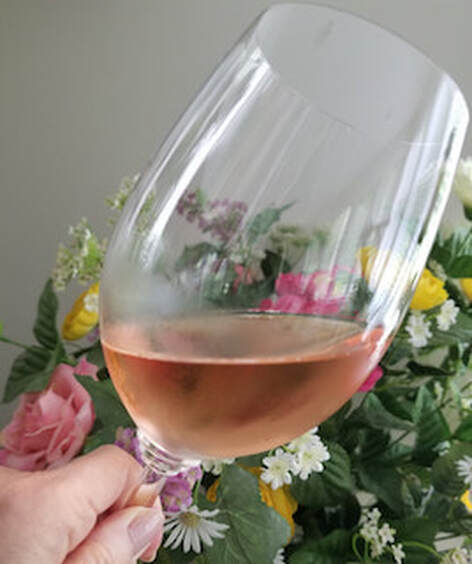
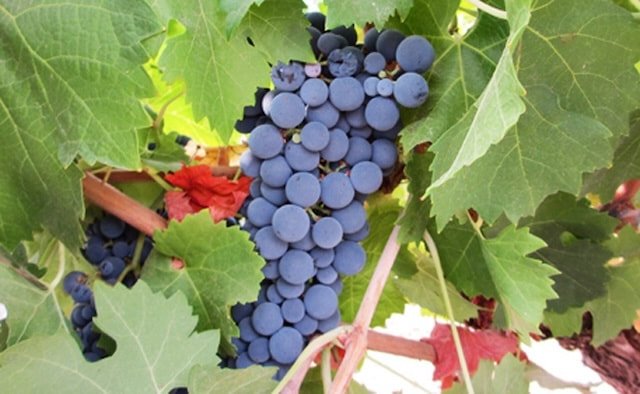
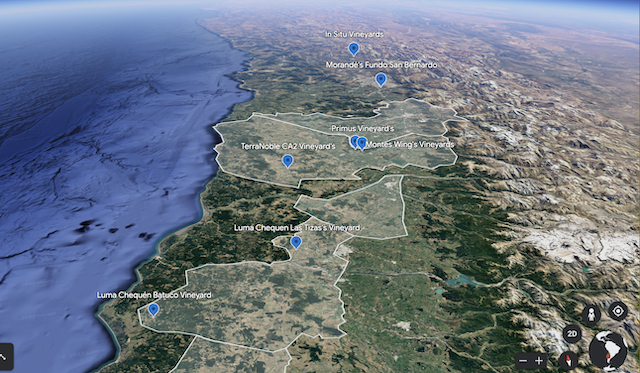
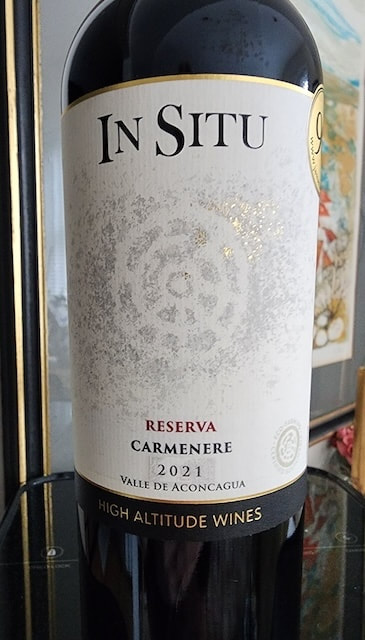
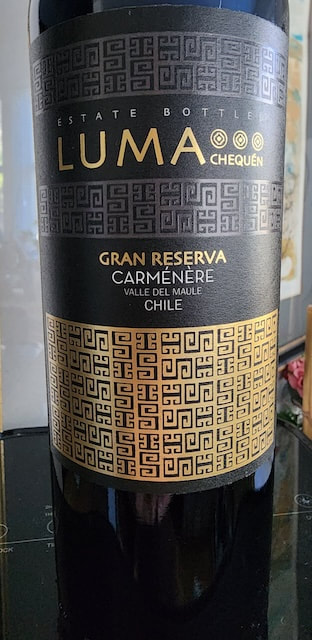
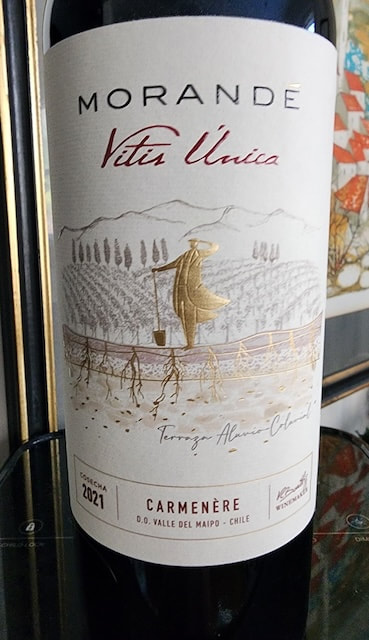
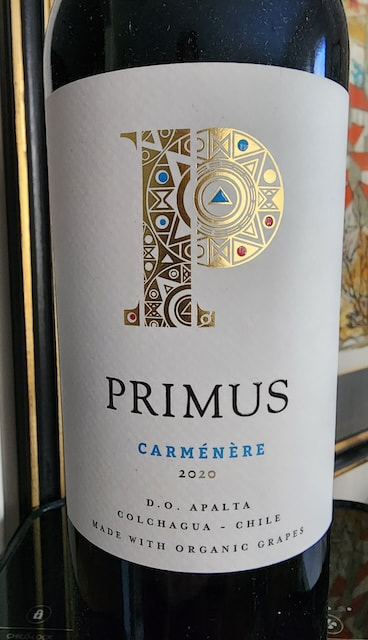
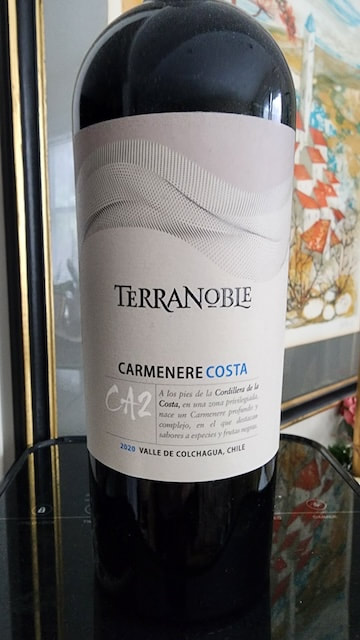
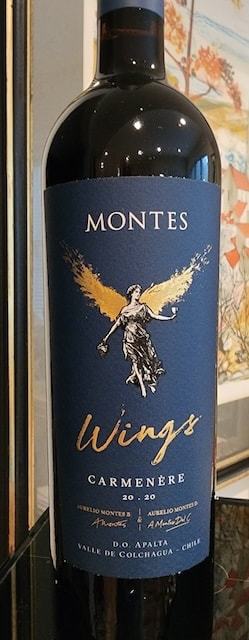
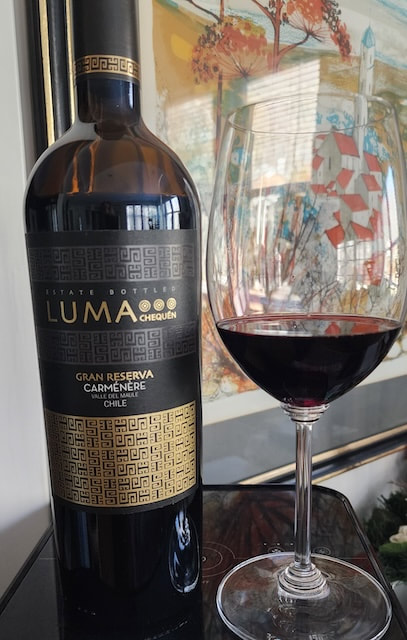

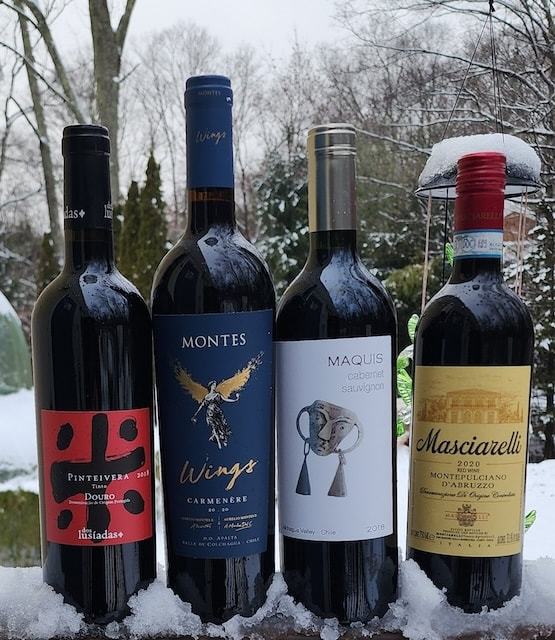
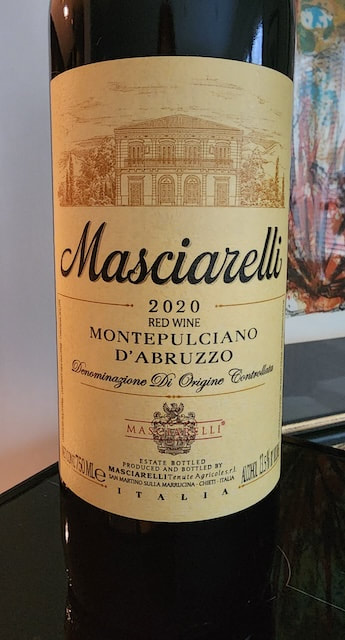
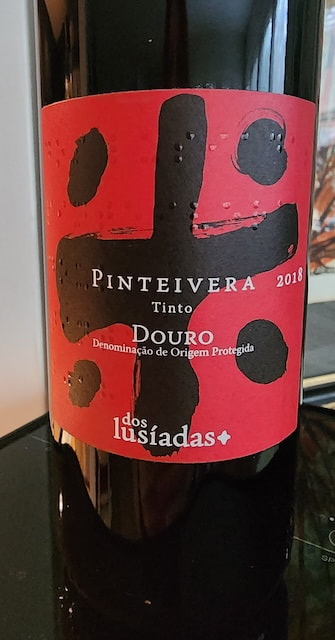
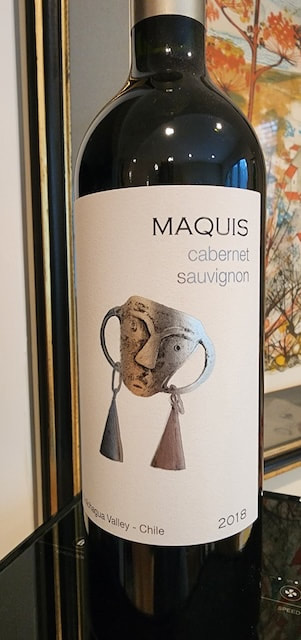
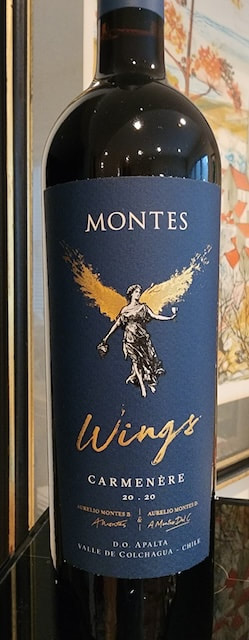
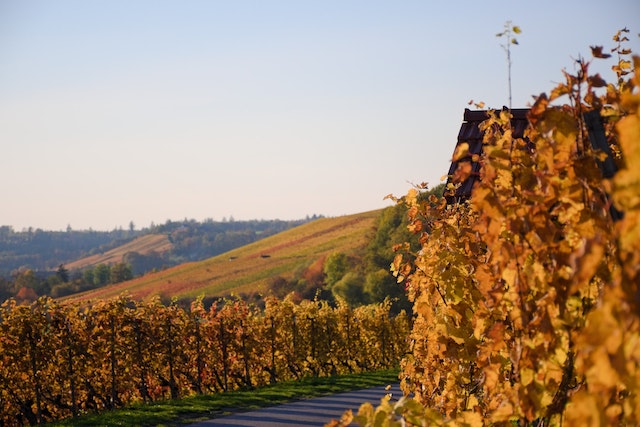
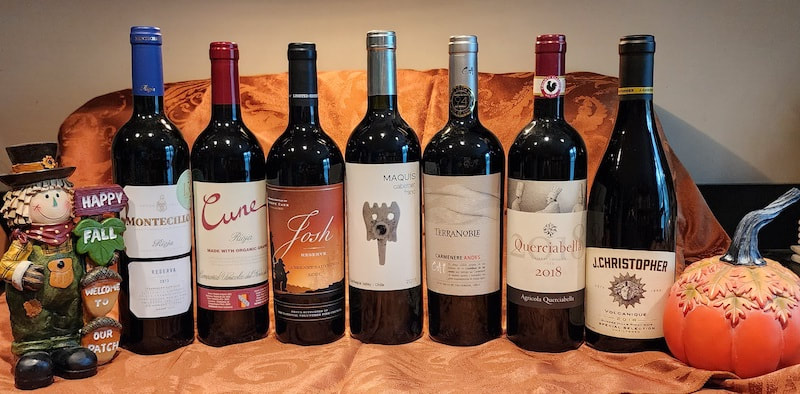
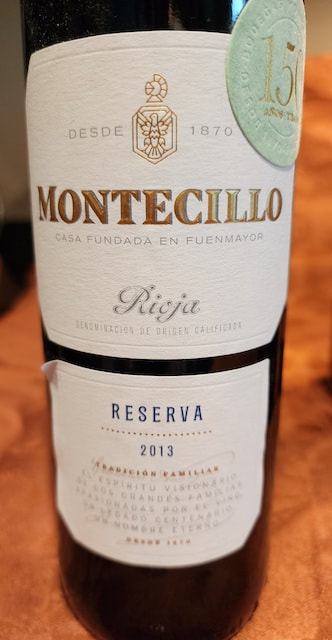
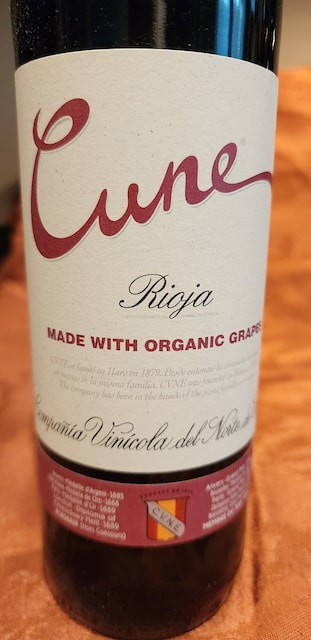
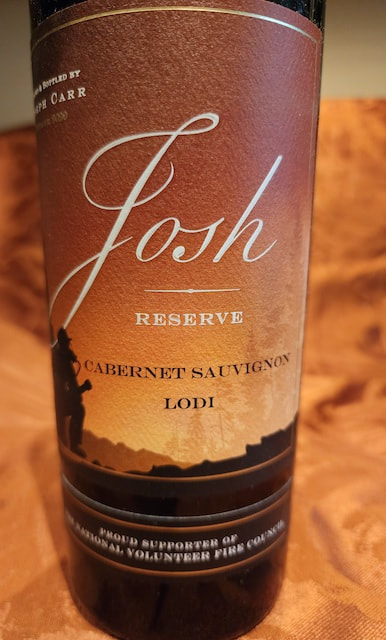
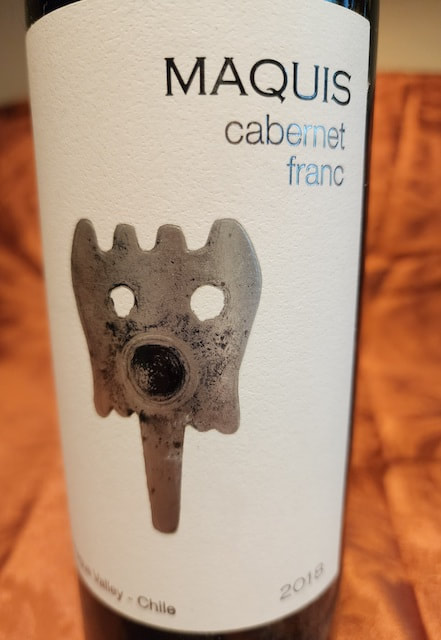
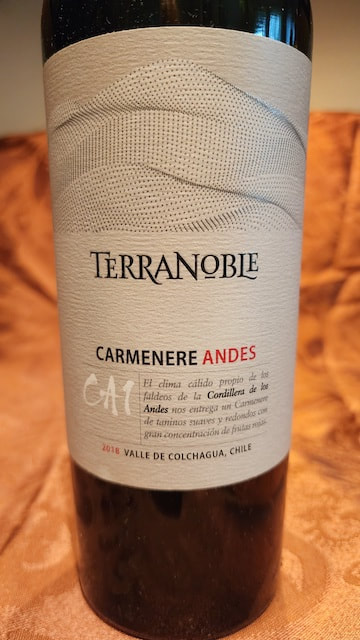
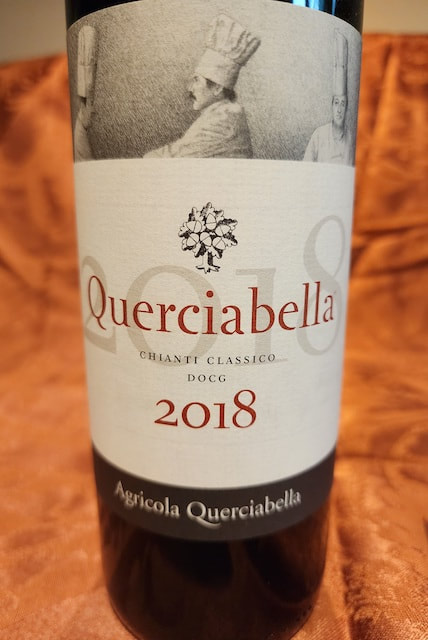
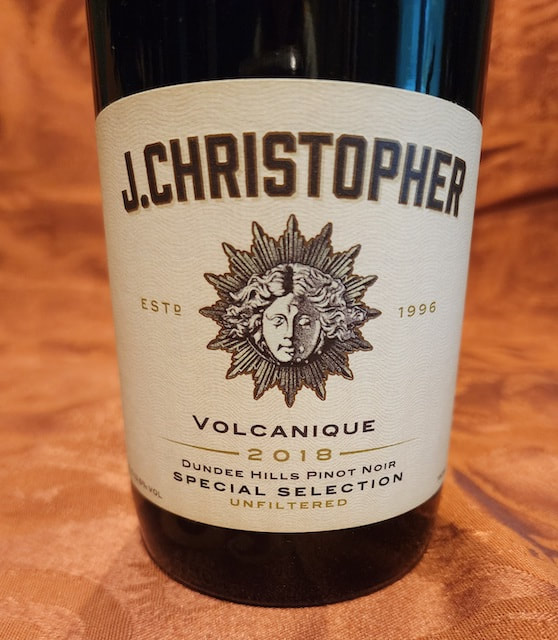
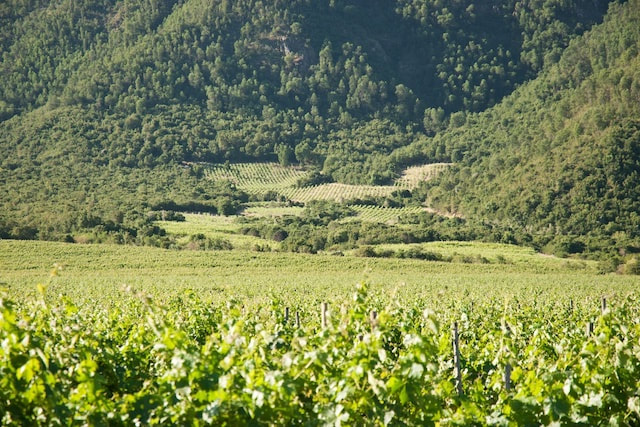
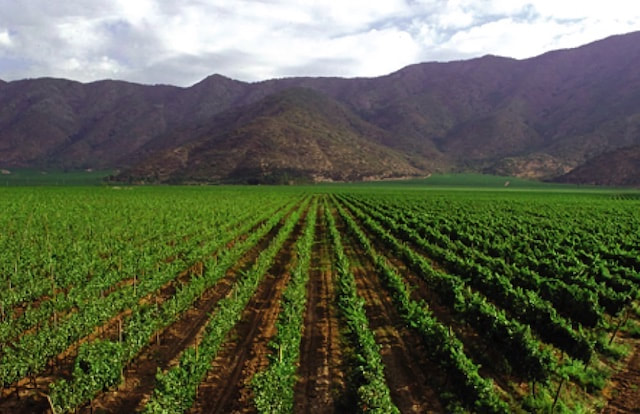
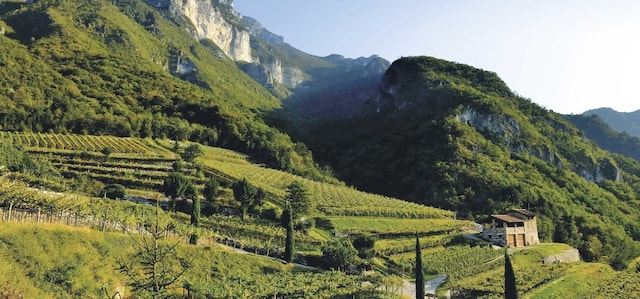
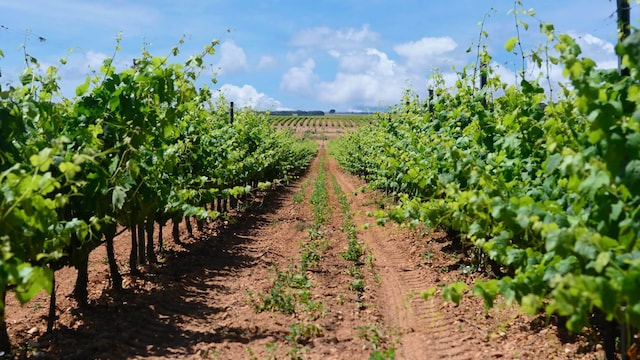
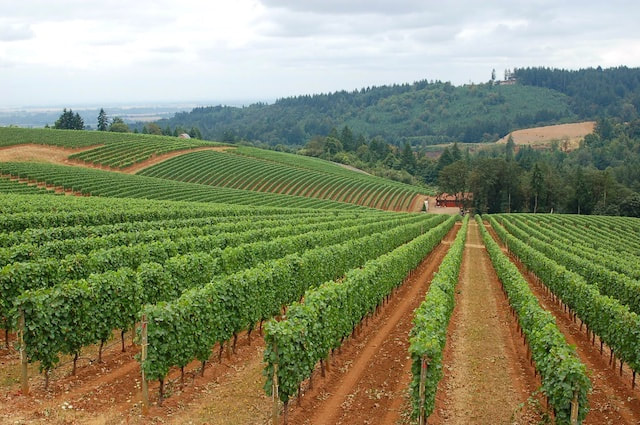
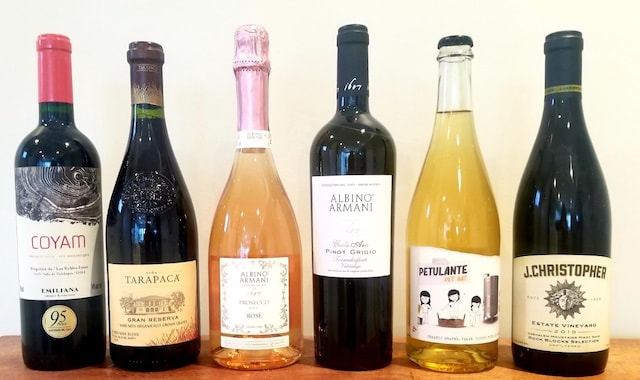
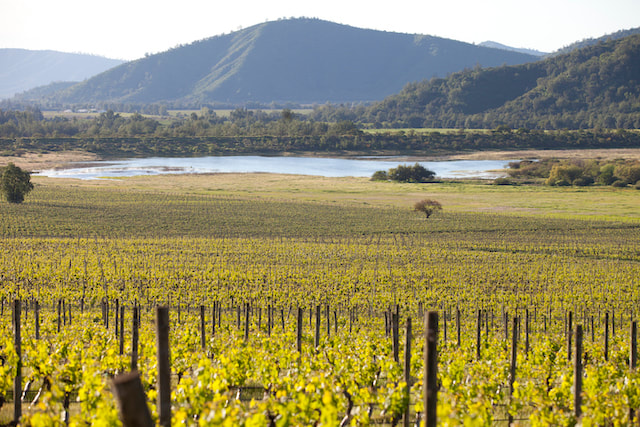
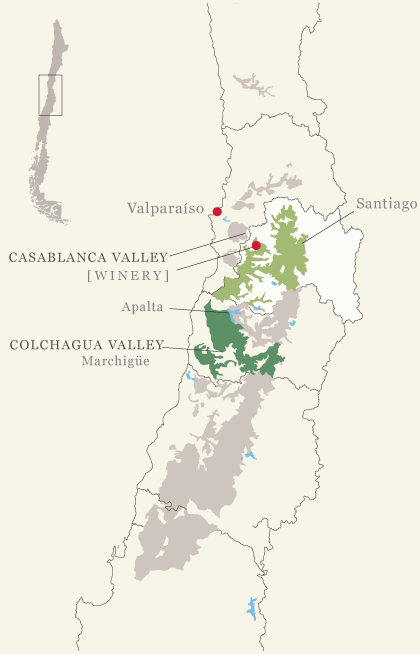
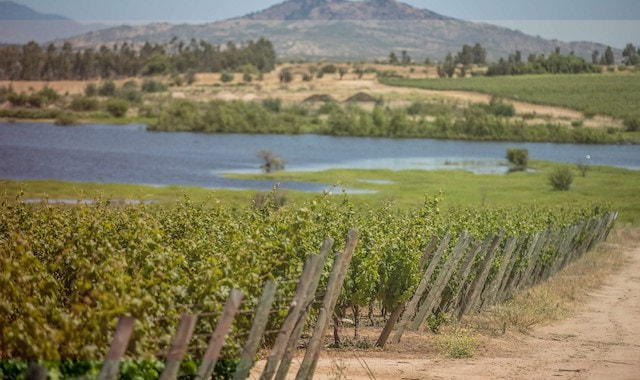
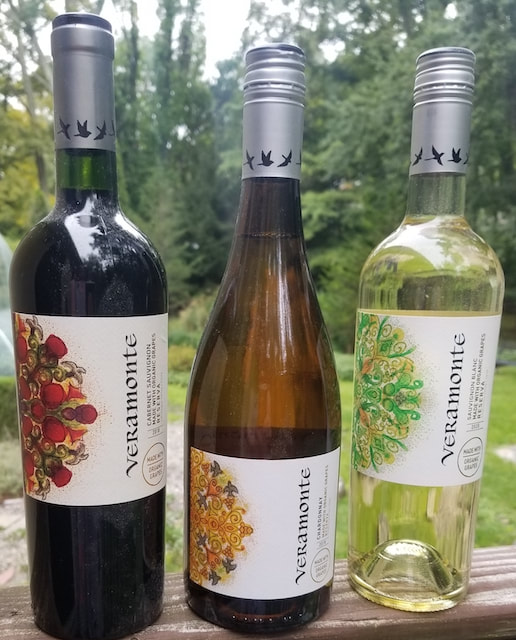
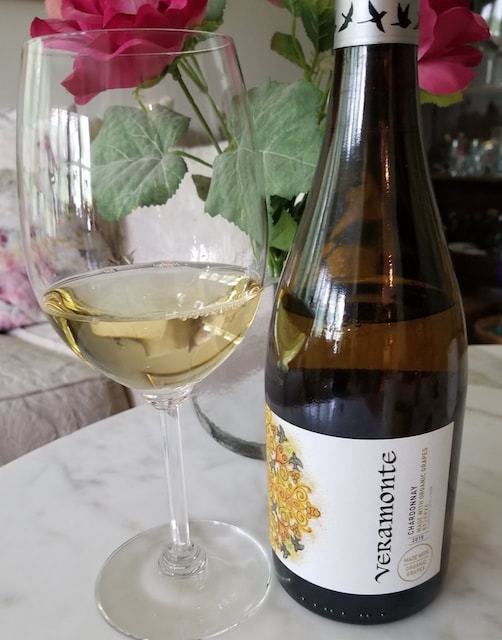
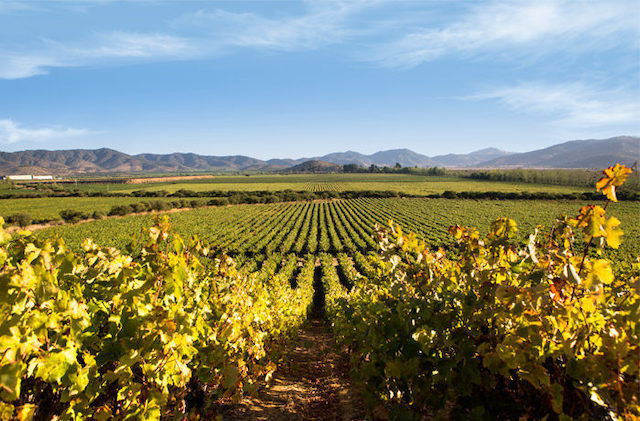
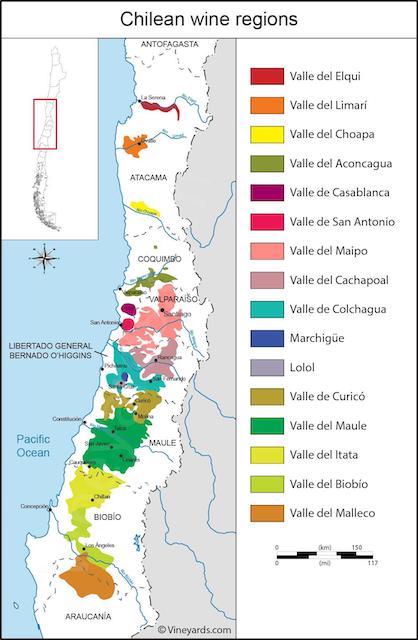


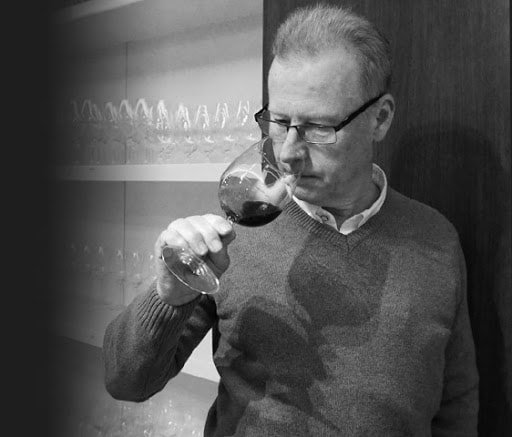
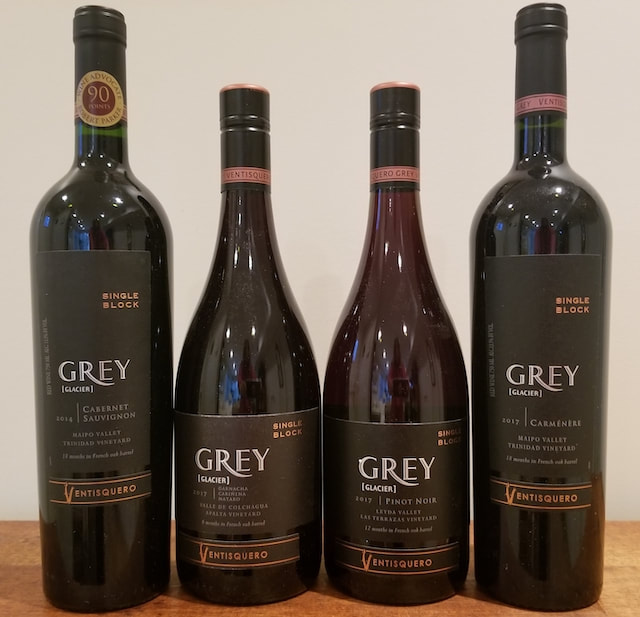
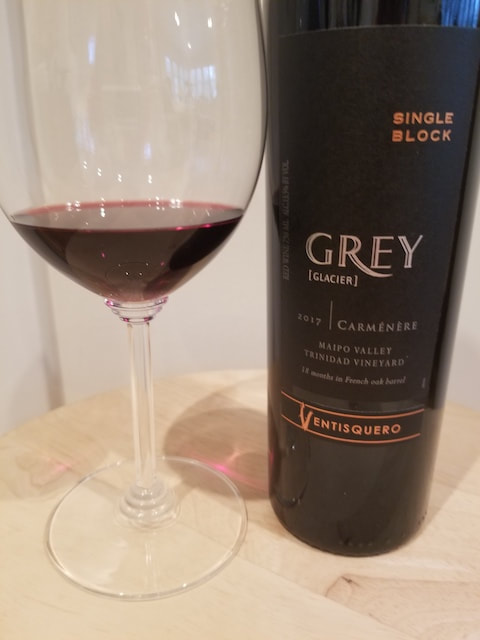
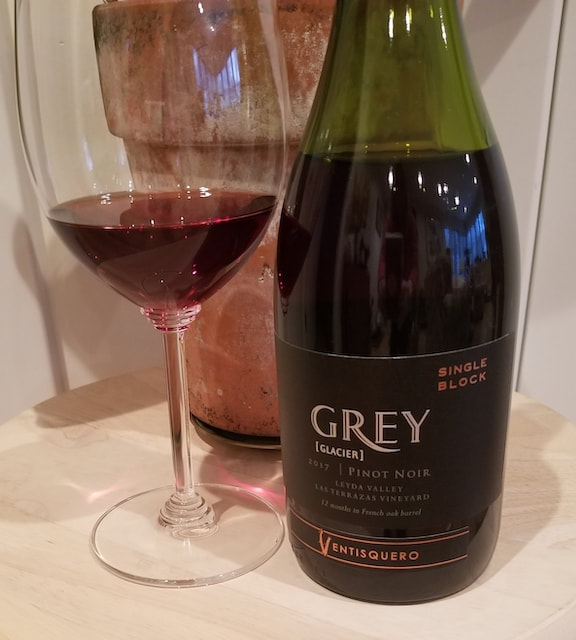

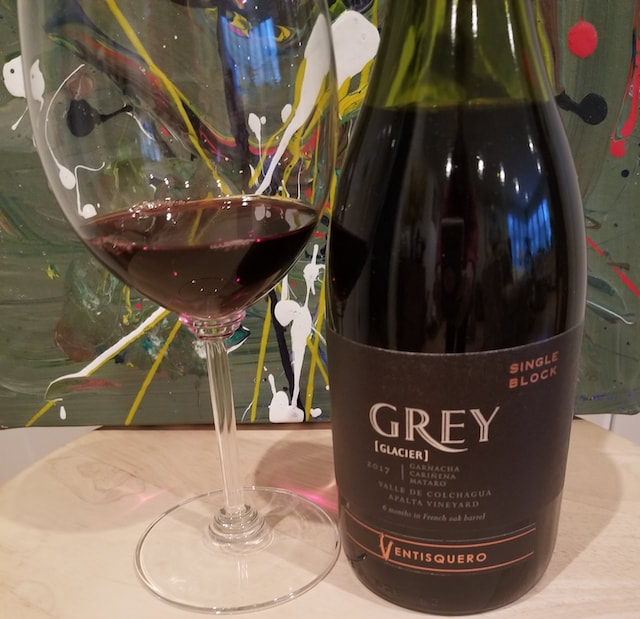
 RSS Feed
RSS Feed